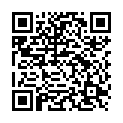|
|
|
| Module code: WIBASc245 |
|
|
2V+2U (4 hours per week) |
|
5 |
| Semester: 2 |
| Mandatory course: yes |
Language of instruction:
German |
Assessment:
Written exam
[updated 02.07.2019]
|
WIBASc245 (P450-0037) Industrial Engineering, Bachelor, ASPO 01.10.2013
, semester 2, mandatory course
|
60 class hours (= 45 clock hours) over a 15-week period.
The total student study time is 150 hours (equivalent to 5 ECTS credits).
There are therefore 105 hours available for class preparation and follow-up work and exam preparation.
|
Recommended prerequisites (modules):
WIBASc155 Materials Engineering
[updated 31.01.2020]
|
Recommended as prerequisite for:
WIBASc-515 Automation Engineering
WIBASc-525-625-FÜ26 Planning a Production Plant
WIBASc-525-625-FÜ30 Production Project
WIBASc-525-625-Ing1 Production Planning (Seminar)
WIBASc-525-625-Ing14 Machine tools
WIBASc-525-625-Ing2 Integrated Production Systems
WIBASc-525-625-Ing22 Automation Technology
WIBASc-525-625-Ing24
WIBASc-525-625-Ing4 Quality Techniques (Seminar, English)
WIBASc-525-625-Ing8 Elements of Technical Products
WIBASc345 Design Technology / CAD
[updated 19.01.2022]
|
Module coordinator:
Prof. Dr.-Ing. Dieter Arendes |
Lecturer:
Prof. Dr.-Ing. Dieter Arendes
[updated 20.01.2020]
|
Learning outcomes:
After successfully completing this module students will:
_ be familiar with the most important manufacturing processes (German norm DIN 8580).
_ know about their special technological features (e.g. operating principles, process parameters, tool systems).
_ be able to name their economic areas of application.
_ be able to name their limits and technological areas of application.
_ be able to name typical processes for the production of selected products.
[updated 02.07.2019]
|
Module content:
_ Primary forming manufacturing processes, in particular casting
_ Sheet forming (bending, deep drawing, metal spinning, ...)
_ Bulk forming (forging, rolling, ...)
_ Stamping, autogenous cutting, EDM (electrical discharge machining)
_ Machining with geometrically determined cutting edge (turning, milling, drilling)
_ Machining with geometrically indeterminate cutting edge (grinding)
_ Introduction to joining, soldering, pressure and fusion welding processes
[updated 02.07.2019]
|
Teaching methods/Media:
Lecture with exercises, animations, FEM simulations, as well as educational and industrial videos.
Sample parts will be passed around for study during the course of the module.
Lecture notes as a collection of slides with questions and exercises.
[updated 02.07.2019]
|
Recommended or required reading:
_ Koether, R./ Rau, W.: Fertigungstechnik für Wirtschaftsingenieure; 4. Auflage, Carl Hanser Verlag, 2012
_ König, W./ Klocke F.: Fertigungsverfahren, mehrere Bände, VDI-Verlag GmbH, Düsseldorf.
_ Lange, K.: Lehrbuch der Umformtechnik, mehrere Bände; 2. Auflage, Springer Verlag, 2002
_ Spur, G./ Stöferle, Th.: Handbuch der Fertigungstechnik, mehrere Bände, Karl-Hanser-Verlag.
_ Awiszus, B.: Grundlagen der Fertigungstechnik Carl Hanser Verlag, 5. Auflage, 2012
_ Tschätsch, H.: Praxis der Zerspanungstechnik, Vieweg+Teubner Verlag, 10. Auflage, 2011
_ Pauksch, E, et al.: Zerspantechnik, 12. Auflage, Vieweg+Teubner 2008
_ Westkämper, E. / Warnecke H.-J.: Einführung in die Fertigungstechnik, Vieweg+Teubner Verlag; 8. Auflage, 2010
[updated 02.07.2019]
|

